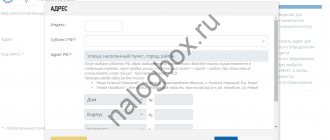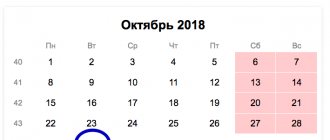Determining the statute of limitations in taxation
Legislation is still trying to regulate the statute of limitations for transport taxes. The system is still not perfect, but the Tax Code sets the period at 3 years .
Clause 1 of Article 113 contains the answer: no one can be held accountable if a three-year period has passed .
If the car owner decides to evade payment, the fiscal authorities may insist and forcibly collect the funds. In this case, they will again be guided by the Tax Code. That is, all their actions are dictated by law and the penalty is lawful.
Important! You shouldn’t immediately go pay all the bills that are in your mailbox. Be sure to make sure you have any debt.
If a tax claim is discovered, especially if there is more than one, it is important to obtain an explanation and 100% confirmation of the situation. You can contact the tax authorities to clarify the situation. The Federal Tax Service can start the process of demanding payments no earlier than after 3 months : first, send the defaulter a document informing about the debt, and six months after discovery, send the data to the court.
What changed in legislation in 2018
In accordance with the requirements of the Tax Code, payment of transport tax is made to the actual location of the car. This regulatory legal act sets the deadline for making such a payment - December 1.
A similar situation may arise if tax officials discovered an error in earlier calculations. After correcting the error, the amount that the former owner was required to pay for previous periods was revealed.
In accordance with Russian legislation, each owner (owner - the person indicated in the car passport) of a motor vehicle is required to pay state transport tax. When drawing up a purchase and sale agreement for a car, all rights and the need to pay taxes and fines from the seller are removed.
I contacted the store where I bought it, to which they replied that they could only pick it up for repairs. My request to replace the product with a similar one was refused, as was my request for a refund. Tell me what to do. Best regards, Dmitry.
https://youtu.be/XVNWEVd9wso
Rules for calculating and paying transport tax
Car tax is regional. The details are described in Article 14 of the Tax Code, but in short we can say that regions of the country can change the conditions, amount and period at their discretion. It is important to know that the taxpayer must pay the fee only in the region where the car was registered.
In most cases, vehicle owners pay the fee once a year, provided that the tax office does not require this to be done more often or less frequently.
Important aspects
The main elements of the taxation system, the procedure for calculating, paying taxes and mandatory fees and payments are provided for in Chapter 30 of the Tax Code of the Russian Federation. As for the deadline for their payment, they are approved by the state executive authorities of the constituent entities of the Federation.
The legislator allows the submission of a claim from the Federal Tax Service if the amount of debt is:
| Indicators | Description |
| More than 500 rubles | for 3 months |
| Less than 500 rubles | for one month |
The period is counted from the date of delay, which is enshrined in the instructions of Article 70 of the Tax Code of the Russian Federation. The taxpayer must repay the debt within 8 days of receiving the notice.
This norm is provided for by the instructions of Article 69 of the Tax Code of the Russian Federation. The Federal Tax Service has the right to appeal to a judicial authority if it is not repaid within the specified period in accordance with the instructions of Article 48 of the Tax Code of the Russian Federation.
In accordance with the instructions of the legislator, regulatory legal acts of subjects on taxes must clarify certain provisions of Chapter 30 of the Tax Code of the Russian Federation, if this kind of right is vested in regional legislative assemblies.
The expression “regional tax” means a tax established by the Tax Code and the laws of the constituent entities of the Federation, which must be paid without fail in the territory of the corresponding subject.
But in letter No. NA-6-21/1704 of the Ministry of Taxes and Taxes of the Russian Federation it is noted that it has the right to establish transport tax benefits.
The subject must clearly establish:
- category of taxpayers who can take advantage of benefits;
- grounds for using transport tax benefits;
- methods of exercising control over the intended use of the relevant category of vehicles.
The right to receive tax benefits at the federal level is given to disabled people, participants of the Second World War and combat operations, and pensioners in the amount of 50%. The norm is enshrined in the instructions of Article 407 of the Tax Code of the Russian Federation.
The legislator, by the instructions of Article 250 of the Tax Code of the Russian Federation, exempted a certain category of individuals and legal entities from paying personal income tax and income tax.
These include:
| Indicators | Description |
| Minor children | — |
| Persons recognized as disabled | in accordance with the procedure established by the legislator on the basis of the conclusion of a medical and social examination |
| Residents of an apartment building | when making transactions of purchase and sale of common property, as noted in the instructions of Article 401 of the Tax Code of the Russian Federation |
| Persons using land plots free of charge, including tenants | the norm is provided for in the instructions of Article 388 of the Tax Code of the Russian Federation |
| Organizations not conducting non-commercial activities, being a legal entity | — |
Anyone interested can find out the statute of limitations for transport tax for individuals through State Services - an electronic government portal that contains information about the debts of tax residents of the country.
It is available to all Internet users who need to register to receive it.
The order of the judicial authority to collect the transport tax is subject to execution within 3 years, counted from the date of its transfer by the tax service to the FSSP.
The norm is established by Federal Law No. 229-FZ. The SS Service initiates enforcement proceedings, as a result of which the debt is collected forcibly.
If the tax service does not transmit the order to the SS service within 3 years, then the transport tax debt is canceled.
The validity of the court order is interrupted while it is being executed by the FSSP. Enforcement proceedings will be closed if the taxpayer disappears or does not have the funds to pay off the transport tax debt.
In this situation, the order is returned to the claimant, who, within 3 years, can apply for the renewal of the individual entrepreneur.
Limitation period for transport tax
We have already noted that the statute of limitations is regulated by the Tax Code.
In particular, Article 113. It says that a taxpayer has not been held accountable for 3 years
That is, they can attract him only if there is a trial that will extend the statute of limitations for this specific case.
Otherwise, if the debtor was notified at the specified time, and within 3 years a trial was held obliging the owner of the vehicle to repay the debt to the state, there are no time limits. That is, it will no longer be possible to go against the judge’s decision.
Resolution of controversial situations
Often, the tax service makes mistakes when calculating transport tax, that is, the driver may receive a receipt for the tax already paid, a notification may be sent after the three-year period for collection has expired, or the amount may be incorrectly indicated on the receipt. In all these cases, the tax requirements do not comply with the law, so the driver is not required to make payments. In this case, controversial situations may arise that require investigation. Otherwise, the driver may be fined or subject to stricter liability:
- Ban on leaving the country;
- Administrative arrest;
- Forced deductions from a bank account;
- Towing a car and selling it to pay off a debt with a large amount of debt.
If a similar situation occurs, but it is not justified, the taxpayer can appeal to the prosecutor's office or court. For example, the driver received a receipt for payment of transport tax for 2016 and along with it a notice of debt for 2010. Moreover, the last document was sent by the bailiffs on the basis of a court decision. In this case, an individual has the right to appeal the decision in court on the basis that the owner did not know about the existence of the debt and did not receive relevant notifications. Before this, it is better to pay the debt, since sanctions may be taken against the debtor during the re-trial.
If the driver received a secondary receipt or order to collect a debt for a previously repaid payment, he should present the corresponding receipts to the Federal Tax Service or the Bailiff Service. Transport tax is often charged to people who sell a car during the tax period. This is legal if the receipt contains the amount only for those months when the owner had the car. If there is no deduction taking into account the sale or you receive a receipt when the car was sold more than a year ago, you must present documents about the purchase or sale and change of owner to the nearest branch of the tax authority. If transport tax is assessed to a person without taking into account his benefits, you should contact the tax office for recalculation.
Compulsory collection of transport tax
Hoping that inspectors won't notice unpaid taxes (even taxes) for three years is a waste of time.
All lists are checked constantly, not only automatically, but also manually. Inspectors try by any means to achieve a higher percentage of debt repayment, which is why, in order to avoid equipment failure, the result is double-checked manually.
Provided that the notice was received but not paid, the Federal Tax Service must begin forced collection from the beginning of December.
In order to avoid misunderstandings with government authorities, each car owner contacts the tax office independently every December if the post office has not delivered the document for payment processing. This is not just the driver’s responsibility, but also a way to avoid penalties.
The payment request shall indicate:
- the amount that should have been charged;
- penalties if they have already been added;
- the period of time for which you need to deposit money;
- announcement of the measures that await the debtor if he decides to ignore the demand;
- deadline for depositing funds.
In order to pay the bills, the debtor has only 8 days (only working days are counted) from the moment the claim came into his hands. This is the default rule. The document may indicate other dates. Art. 69 clause 4 of the Code.
If the car owner continues to ignore the requirements, inspectors take the case to court. Usually the judge orders the seizure of the property of the perpetrator in the amount of the debt and penalties. If the case somehow doesn't make it to court, sooner or later the statute of limitations will expire and relieve the driver of liability.
Situation options
Quite often in judicial practice, controversial issues arise in relation to such an issue as the statute of limitations for transport taxes.
Important! The taxpayer is not obliged to comply with demands of tax authorities that are not legal.
If there are still legal grounds, situations such as the imposition of a fine or a penny, property seizure, a ban on traveling abroad, seizure of cash or a tax audit may arise.
Read more: Bosch ZMZ 406 ignition coil
Let's look at the most common cases regarding transport tax payments.
- Example 1. Let’s assume that the taxpayer received a notice of mandatory tax payment for a vehicle for 2014. Additionally, the notice indicates the presence of arrears for 2007. In such a situation, it is necessary to pay tax for the year, according to the notice. But regarding the arrears, it is worth understanding where it came from and why it appeared. If the debt is supported by a judicial basis that is being executed by the bailiff, then it will have to be repaid. Otherwise, you can appeal the court decision, but only on the condition that the taxpayer did not suspect the existence of such a debt.
- Example 2. Let's imagine that the payer received a court order informing about the mandatory collection of tax arrears. You can appeal this decision within 10 days from the date of its receipt. If the court order is canceled, the court must explain the applicant’s right to appeal to the courts according to the rules of claim proceedings.
- Example 3. Let’s say a taxpayer received a claim for withholding arrears, penalties and duties, but the above claim was filed when the statute of limitations for non-payment of tax fees had expired. In this case, the debtor has the right to object in writing to the stated claim. Separately, it is necessary to indicate that the claim was filed with an expired statute of limitations, and this is an indisputable basis for refusal to pay.
- Example 4. The payer received a claim with a mandatory requirement to repay arrears that were 5 years old. In this case, the taxpayer has the right to send a written complaint regarding unlawful claims to the judicial authorities.
It often happens that errors occur, the payer paid the tax, but the documents indicate the opposite. Then you need to present a receipt to the Federal Tax Service confirming the payment. If a mistake was made in terms of incorrect data about the vehicle, then you need to submit a tax application requesting a recalculation.
3 comments
Anastasia - Reply
I collected a large sum for the transport tax on a car that has not been there for a long time... it was sold by proxy 12 years ago... the fate of the car is unknown to me and the taxes go to me... should I pay it? I live in a completely different city...
Ivan - Reply
Hello! I received a claim for arrears and penalties for transport tax, the car has been missing for 8 years, the receipts have not been preserved. I called the tax office and they said there was a non-payment in 2006. What to do?
Anatole! - Answer
I pay my taxes regularly, I didn’t save the receipts. And then there were debts from five years ago or more. I didn’t wait, I didn’t wait! A racket in uniform has arrived! What to do?….
This is tough! A note to everyone for the future about how our state operates... Let's start in order... The first is a well-known story that a transport tax is valid for 3 years and then expires - complete nonsense! There is no such. Seeing a negative balance on the card, calling the crisis service, they told me that the money was seized, but not withdrawn, this was on Friday, I printed out the receipts and paid them on Wednesday, there was no opportunity to go this very week - because! The schedule of government agencies is made in this way, in one place! An appointment once a week lasts 6 hours with a break for lunch for an hour and thirty)))) Well, everything is for the people))) It’s impossible to get through there for an hour on the automatic dialer didn’t save me... Well, I found the time and went at 9 am... At 11 I got to the bailiff. We look at my case, everything was fine, everything was paid, here is a resolution for you, a week after payment the card must be unblocked. OK. I came to the bank, I thought, let me look at the balance. And there, instead of -6000, it’s already 15,000!
AAAAAAAAA!
Okay, I give my orders and ask them to make an extract... We look, and then on Tuesday all my money has already been written off from me and another 9,000 rubles have been written off again... I went nuts... Well, it was decided to deal with this matter to the end.
I'm going back to the bailiffs. There’s a line again... I come in like, what’s up with madam... I poke at the card statement... Oh. Yes, indeed, repeated withdrawal is wrong! I say: It’s okay that you withdrew money from the card and plus I paid in cash myself... Summary: wait until next week when I get at least something on the card and with a new statement and all the documents go back to the bailiffs to continue returning the money... He will leave Unfortunately, this took about a month Read more: Chevrolet car all models
Summary No. 2:
You need to pay transport fees (((
Summary No. 3:
Having a Sberbank card and having at least some debts to the state are two incompatible things.
The HOA can also charge you for rent through the bailiffs. As soon as I get everything back, I close the account there and go to another bank!
Advice: if they finally get to you and your card, it’s better to first go to the bailiffs and find out the procedure for arresting/writing off funds from your account, then you will insure yourself against double payment.
Deadline for a traffic police inspector to go to court
- In case of a large debt (3 thousand rubles or more) , after the expiration of the period provided for payment in the request, they can go to court within 6 months .
- In the case of a small debt (up to 3 thousand rubles) , after the expiration of the period provided for payment in the demand, they can go to court within 3 years. If during this period the amount grows to 3000, then the inspectors will send the case within 6 months, maximum.
Provided that the statute of limitations has expired, the tax authorities can no longer forcibly collect the debt. The payer can pay off the debt at his own request. The court may extend the period if it finds a compelling reason for this. More information about the tax and its collection can be found in the video.
The car owner should carefully monitor payments to avoid consequences. If funds do not allow you to pay your obligations, it is better to try to negotiate with the inspectors on an installment plan than to wait until the amount increases due to penalties and the property is seized.
Liability for non-payment
Some groups of persons have the right not to pay the tax in question. If the car owner falls into one of the following categories, the requirement to pay transport tax does not apply to him:
- persons who were previously prisoners of fascist camps;
- those who were in the radiation zone of the Chernobyl nuclear power plant and have official documentary evidence of this;
- pensioners;
- a person whose vehicle is officially listed as stolen (subject to the provision of the relevant official police certificate to the tax service);
- people who, as officially recognized, have any special services to the Fatherland (this category usually includes holders of the Order of Glory, WWII veterans, heroes of the Russian Federation, heroes of the Soviet Union);
- guardian of a child who is disabled;
- disabled people who have the first or second disability group;
- car owners whose vehicle is equipped with an engine whose power is less than 70 horsepower;
- employees of defense industry enterprises who were previously employed at various military facilities, especially during periods of nuclear weapons testing;
- persons who are officially participants in any hostilities;
- a parent whose family, in accordance with regional legislation, is recognized as having many children.
What happens if you do not pay transport tax for 2 years or more, but do not belong to any of the above categories of citizens? The sanctions described in the article will be applied to such a car owner.
Attention! A statement of claim can be drawn up and sent only when its amount exceeds 5,000 rubles.
The lawsuit is also limited in time: it must be filed no later than six months after all the allotted deadlines for payment have passed. And if the tax authorities missed this time period, then resolving the issue can be very difficult.
Attention! The amount of the penalty is calculated in the amount of 20% of the total volume of the calculated debt. In the case where there is evidence that non-payment of tax was intentional, the amount is doubled, reaching 40%.
READ MORE: Tax from July 1, 2020 trading fee Advisor
Many debtor owners are worried and ask whether their car can be seized for transport debts?
According to the letter of the law, the court may well seize the vehicle. Therefore, neglecting to pay the car duty can cause many problems, restrictions and expenses for a citizen.
We remind you that even if you thoroughly study all the data that is publicly available, this will not replace the experience of professional lawyers! To get a detailed free consultation and resolve your issue as reliably as possible, you can contact specialists through the online form.
Clause 3 Art. 363 Tax Code of the Russian Federation
Clause 1 Art. 70 Tax Code of the Russian Federation











